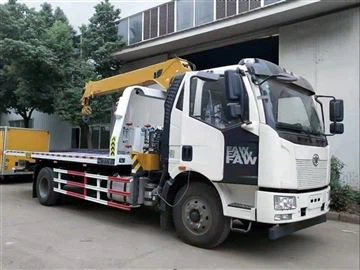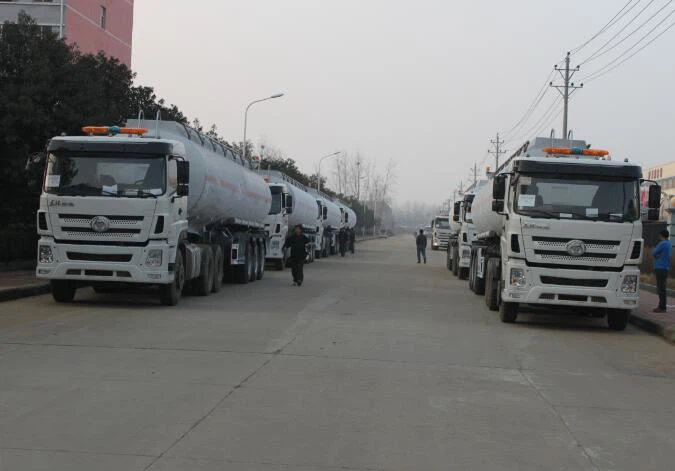Fuel Truck for Sale: Your Complete Buying Guide

Finding the right fuel truck for sale can be a challenging task, especially given the variety of options available in the market. Whether you are in the transportation, construction, or agriculture industry, having a reliable fuel truck is essential for your operations. This article will serve as a comprehensive guide, detailing everything you need to know about purchasing a fuel truck, from the types available to financing options, maintenance, and much more.
What is a Fuel Truck?
A fuel truck is a specialized vehicle designed to transport fuel to various locations. These trucks are equipped with tanks, pumps, and other necessary features to safely and efficiently manage various types of fuel, including gasoline, diesel, and oil. Fuel trucks are commonly used in various industries, such as construction, agriculture, and fleet services.
Types of Fuel Trucks
1. Tanker Trucks
Tanker trucks are large vehicles specifically designed for transporting liquids. They come in various sizes and can carry a significant amount of fuel. The capacity can range from a few hundred to over a thousand gallons.
2. Refueling Trucks
These trucks are often used at airports, construction sites, and military bases. They are equipped with pumps and hoses to refuel aircraft, heavy machinery, and other vehicles directly on-site.
3. Portable Fuel Tanks
Portable fuel tanks are smaller and more versatile. They can be mounted on pickup trucks or trailers, making them suitable for small businesses that need to transport fuel to multiple locations.
Important Features to Look for When Buying a Fuel Truck
1. Tank Material
The tank’s construction material significantly influences its durability and resistance to corrosion. Common materials include:
| Material | Pros | Cons |
|---|---|---|
| Aluminum | Lightweight, corrosion-resistant | Less durable under heavy impact |
| Steel | Very durable, strong | Heavier, susceptible to rust |
| Stainless Steel | Highly resistant to corrosion, very durable | More expensive |

2. Pump and Hose System
The efficiency of a fuel truck largely relies on its pump and hose system. Ensure you choose a truck with a reliable pump that meets your refueling needs. Look for the following:
- Flow rate
- Type of pump (electric or mechanical)
- Length and durability of hoses
3. Safety Features
Safety is paramount when handling fuel. Look for these features:
- Automatic shut-off valves
- Ventilation systems
- Emergency discharge controls
4. Regulatory Compliance
Fuel trucks must adhere to strict regulations regarding safety, environmental impact, and fuel transport. Ensure that the truck complies with local and federal regulations.
5. Maintenance and Warranty
Consider the long-term costs of maintaining the vehicle. A good warranty can save you money in the long run. Check for:
- Length and coverage of warranty
- Availability of service centers and parts
Where to Find Fuel Trucks for Sale
1. Online Marketplaces
Websites like Craigslist, eBay, and specialized truck sales platforms are excellent places to find fuel trucks for sale. Filters can help you narrow down options by price, year, and condition.
2. Auction Sites
Online auction sites can offer great deals on used fuel trucks. However, ensure you’re knowledgeable about the bidding process to avoid overpaying.
3. Local Dealerships
Visit or call local dealerships specializing in commercial vehicles. They often have a range of new and used fuel trucks, along with the advantage of professional advice.
4. Industry Trade Shows
Trade shows can connect you with manufacturers and dealers. You may find the latest models and technologies by attending these events.
Financing Options for Fuel Trucks
1. Traditional Loans
Securing a traditional bank loan is one of the most common methods to finance a fuel truck. Prepare the necessary documentation to improve your chances of approval.
2. Leasing
Leasing a fuel truck can be a viable option for businesses that need flexibility. This allows you to use the vehicle without committing to full ownership.
3. Government Grants
Some government programs offer grants or financing assistance for businesses in specific industries. Research local programs that may be applicable to your situation.
Tips for Maintaining Your Fuel Truck
1. Regular Inspections
Conduct regular inspections to identify any issues, particularly with the fuel tank, pump, and hoses. This proactive approach can prevent major breakdowns or accidents.
2. Clean Fuel Systems
Keeping the fuel system clean is essential to ensure optimal performance. Use additives if necessary and change filters regularly.
3. Record Keeping
Maintain accurate records of maintenance and repairs. This documentation can help identify patterns and issues over time.

4. Train Your Team
Ensure that your team is trained in safe fueling practices and understands the truck’s features to operate it efficiently.
Practical Examples of Fuel Truck Uses
1. Agricultural Operations
Farmers often utilize fuel trucks to refuel machinery in the field, thereby increasing efficiency and reducing downtime.
2. Construction Sites

Fuel trucks on construction sites provide fuel for heavy machinery, making it easier to keep projects on schedule.
3. Commercial Fleets
Businesses with multiple vehicles can benefit significantly from having a dedicated fuel truck to ensure quick refueling without relying on gas stations.
Frequently Asked Questions (FAQs)
1. What should I check before buying a used fuel truck?
Inspect the tank for corrosion, check the pump’s condition, and ensure all safety features are functioning correctly.
2. Are there any regulations specifically for fuel trucks?
Yes, regulations may vary by region but generally include safety measures, environmental impact considerations, and proper labeling.
3. How can I estimate the cost of owning a fuel truck?
Consider purchase price, insurance, maintenance, fuel costs, and financing fees to get a clearer idea of overall ownership costs.
4. Can I get a fuel truck with custom features?
Yes, many manufacturers offer customization options based on your specific needs, such as different tank sizes and pump capacities.
5. What are the advantages of leasing a fuel truck?
Leasing allows you to use a fuel truck without a large upfront payment and offers flexibility regarding upgrades as technology changes.
6. How do I choose the right size of fuel truck for my needs?
Consider your fuel consumption rate, the distances you typically travel, and the number of vehicles you need to refuel to determine the appropriate tank size.
